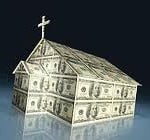 Not long after I moved to the beach I stopped by my favorite coffee shop. I had visited this café often while on vacation over the years, but I was now visiting it as a local. The early spring sun was shining across the emerald water, and the gulf breeze was blowing warm.
Not long after I moved to the beach I stopped by my favorite coffee shop. I had visited this café often while on vacation over the years, but I was now visiting it as a local. The early spring sun was shining across the emerald water, and the gulf breeze was blowing warm.
On this particular morning, my coffee shop – sorry I’ve claimed it as my own – was filled with busy, beautiful, wealthy people: Women with tans, cleavage, and tank tops; men with muscles and sunburns around their fresh haircuts; and children with miniature sunglasses and sandy butts.
Businessmen on vacation were lap-topping the wireless internet with the same ferociousness as they drank their double espressos. Teenage girls were chatting and texting up the proverbial storm over their cell phones. Young men were on the prowl.
Parked in the lot, draped across surgically altered bodies, and dangling from wrists, ears, and fingers were the marks of American wealth and prosperity. Taking in all these sights and sounds I suddenly felt a strange pride blossom in my chest.
I was now a part of this – all of this. This was my brave new world. This was my home. I ambled up to the counter and ordered my favorite mocha disguising best I could my severe southern accent.
Of course my grandmother had a phrase for the charade I was conducting. She would say, “You’ve gotten too big for your own britches.” She was right. And I was about to learn this lesson the hard way.
I stepped out on to the porch of the coffee shop so pleased with how well I fit into this culture of sea, sand, and success, and so very pleased with myself. It was then I saw a gargantuan orange cat sitting on the hood of my car.
The well-polished veneer I had been maintaining suddenly cracked, and then collapsed. Before I could do anything else, the hillbilly inside of me got loose like turning the mule toward the barn at the end of the day.
Hollering I said, “Ahhhh, now you get on out of here!” just how my grandfather used to run the dogs off the front porch. Sorry, unless you’ve heard such howling, you have no idea how horrible it sounds. It doesn’t leap off the page like it explodes onto the ear.
And explode it did. Cell phone conversations in the café ended. The “peck, peck, peck” on laptops came to a screeching halt. Dangling earrings bobbed in my direction. Everyone looked at me like I had just rolled off a hay wagon. I got in my car and drove away thinking, “Just who do you think you are?”
Who do you think you are? It’s a good question. A teacher? A mother? A banker? A carpenter? We usually answer that question based upon our occupation, our station in life, the role we most enjoy, or sadly, by some glaring failure in our life.
But none of these are accurate; not even close. I don’t know who you think you are, but above all else, you are loved. Madly so.
John the disciple never referred to himself by name. He wrote what is likely the most read gospel of the four, even penning the most beloved verse in the Bible, but he never gave his name. He always called himself, “the one Jesus loved.” Was this arrogance? No. It was truth.
John understood that his identity – who he was – was directly connected to the love Christ had for him. So much so, that he did not think of himself as a fisherman, disciple, apostle, or church father. He was simply one that was supremely loved.
We too are the objects of God’s undying affection. That says more about who we are, and who we should think we are, than anything else.
Once in a religious disagreement with someone I was asked accusingly, “Don’t you love God?” My answer was, “I don’t know.” For my love for God waxes and wanes with my circumstances, my mood, and the levels of caffeine and serotonin in my bloodstream.
So I don’t know, at times, how strong my love for God is. But I do know that God loves me, and I know he loves you. That is who we are. And that makes all the difference.

